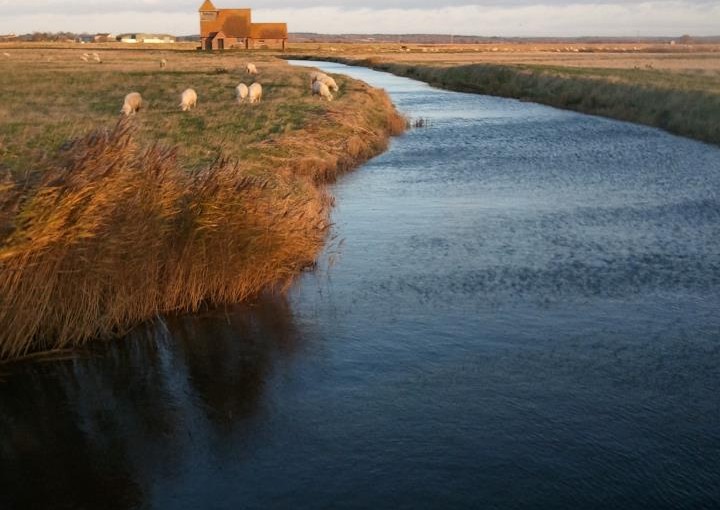Op Traverse calls on anglers to be ‘eyes and ears’ to tackle rural crime

Sussex anglers are being encouraged to become ‘eyes and ears’ for tackling wildlife crime across the county.
The Environment Agency, CEFAS (Centre for Environment, Fisheries and Aquaculture Science) and the Angling Trust have joined forces with the National Wildlife Crime Unit (NWCU) and police forces across the country to promote Operation Traverse, highlighting the many problems with criminals operating in rural communities.
Sussex Police announced its involvement on Tuesday (March 13), to coincide with the start of the three-month close season for river fishing starting on March 15, encouraging all users of the countryside and particularly anglers to help tackle the problems.
Crimes are as diverse as the rural environment itself, ranging from theft of fish to public health issues and destruction of Sites of Special Scientific Interest.
The signal crayfish is an alien invader that is having devastating effects on native crayfish and a number of other freshwater species, but while it is illegal to return any to the water, it is also illegal for any unlicensed person to catch them and introduce them to the food chain.
Along the Sussex coast are a number of cockle beds that are attractive to criminals who similarly are introducing shellfish into the human food chain without the rigorous checks necessary to ensure that they are fit for consumption.
There are many miles of rivers and canals and vast acreages of still waters across the county, containing individual fish that can be worth in excess of £10,000 each. These are obviously very attractive to thieves, but along with the losses sustained by the people who own them, including many fishing clubs and organisations, there is the serious risk of the spread of disease. Fish movements, like livestock, are carefully controlled and unauthorised activity can have a devastating impact on freshwater environments, already threatened by water abstraction, pollution and agricultural run-off.
Sergeant Tom Carter, wildlife crime lead for the force, said: “While there may be some romantic notion of a local poacher tickling a trout to take home for the pot, the reality is that illegal fishing in particular is known to involve organised crime gangs and links to drugs and other crimes.
“This isn’t restricted to Sussex, nor just to the UK and we know that illegal movement of fish takes place across national borders and is a very lucrative activity. The Angling Trust has been very proactive nationally and has promoted good working practises between the Environment Agency and police, especially here in the south-east. They also work closely with eastern European fisheries enforcement officers and are have fostered further working relationships with other enforcement agencies on the continent.
“Sussex Police receives calls throughout the year not only about illegal fishing, but also the taking of swans and other waterfowl. We are now reinforcing the ways in which we can deal with these offences with our officers and staff who take these reports and linking in with partners to improve our response.
“The Angling Trust has 500 voluntary bailiffs across the country who act as the eyes and ears for rural and fishing-related crime and we will be working with them to gather intelligence on rural crime issues. However, there are thousands of people who walk the county’s rivers, lakes and waterways and we are asking them to also report any suspicious activity to help us build an accurate picture of the scale of the problem and to deal with it more effectively.”
Sussex Police and Crime Commissioner Katy Bourne has already met with the Angling Trust and agreed to join them and Sussex Police on Op Traverse wildlife patrols.
“Wildlife Crime is often seen as a less serious issue than other rural crimes which is why it’s vital to raise awareness of the actual scale of it, and the potentially irreparable damage to the ecology and species sustainability.
“It’s also important to recognise the extent to which organised crime is driving the exploitation of the environment and damaging legitimate businesses such as fisheries. I have assured the public that I will make rural crime a priority, and so I am looking forward to the launch of Sussex Police’s comprehensive rural crime strategy in the Spring.
“In the meantime, I wanted to praise the Angling Trust and Sergeant Tom Carter for driving this initiative and to thank in anticipation all those local anglers who can support Op Traverse.”
Charles Bacchus, the Environment Agency’s fisheries technical specialist for Sussex, said: “The Environment Agency is delighted to be working with Sussex Police and the Angling Trust to ensure we support legal fishing in Sussex and prevent unlawful activities on our waterways.”
David Wardley-Wilkins, the Angling Trust’s regional enforcement manager for the south-east, said: “Tackling fish theft and illegal fishing is vital if we are to protect fisheries and having Sussex Police join Operation TRAVERSE is terrific news for all responsible, law-abiding anglers. We very much look forward to working closely with Sussex Police alongside our existing and future partners.”
You can report incidents to Sussex Police online or by calling 101. If a crime is taking place, please dial 999. If you believe it to be an Environment Agency issue, you can contact their 24-hour incident line on 0800 807060.
